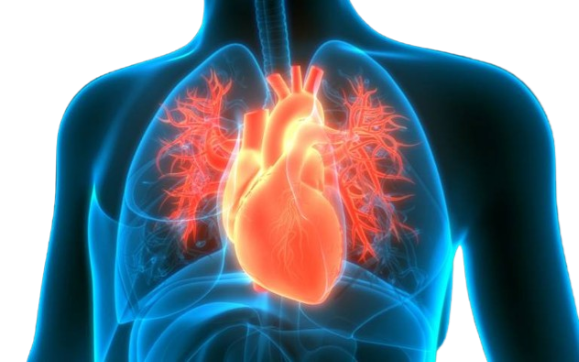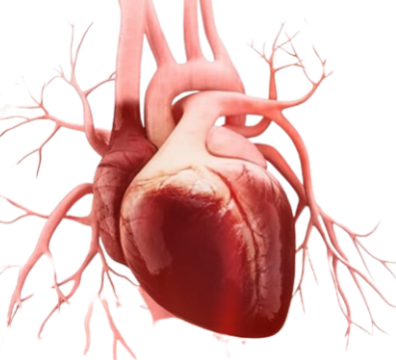Congenital heart disease Expert in Perumbakkam
Your Trusted Partner in Congenital heart disease
Congenital heart disease is a condition present at birth that affects the structure and function of the heart and its blood vessels. We are here to provide you with top-notch care and guidance to tackle your problems.

Understanding Congenital Heart Disease
Types of Congenital Heart Disease
- Atrial Septal Defect (ASD): A hole in the wall between the heart’s upper chambers.
- Ventricular Septal Defect (VSD): A hole in the wall between the heart’s lower chambers.
- Tetralogy of Fallot: A combination of heart defects that can cause oxygen-poor blood to flow out to the body.
- Patent Ductus Arteriosus (PDA): Failure of a fetal blood vessel to close after birth, affecting blood flow.
- Coarctation of the Aorta: A narrowing of the body’s largest artery, the aorta.
- Transposition of the Great Arteries: A reversal of the positions of the two main arteries leaving the heart.
- Hypoplastic Left Heart Syndrome (HLHS): Underdevelopment of the left side of the heart.
Causes
To understand the causes of congenital heart defects, it may be helpful to know how the heart typically works.
The heart is divided into four chambers, two on the right and two on the left. To pump blood throughout the body, the heart uses its left and right sides for different tasks.
The right side of the heart moves blood to the lungs through the lung (pulmonary) arteries. In the lungs, blood picks up oxygen then returns to the heart’s left side through the pulmonary veins. The left side of the heart then pumps the blood through the body’s main artery (aorta) and out to the rest of the body.

Symptoms of Congenital Heart Disease:
- Cyanosis
- Rapid breathing
- poor feeding
- Fatigue
- slow growth in infants
- shortness of breath
- chest pain
- Fainting during physical activity
Risk factors
Most congenital heart defects result from changes that occur early as the baby’s heart is developing before birth. The exact cause of most congenital heart defects is unknown, but some risk factors have been identified. Risk factors for congenital heart defects include:
- Rubella (German measles): Having rubella during pregnancy can cause problems in a baby’s heart development. A blood test done before pregnancy can determine if you’re immune to rubella. A vaccine is available for those who aren’t immune.
- Diabetes: Careful control of blood sugar before and during pregnancy can reduce the risk of congenital heart defects in the baby. Diabetes that develops during pregnancy (gestational diabetes) generally doesn’t increase a baby’s risk of heart defects.
- Medications: Certain medications taken during pregnancy may cause birth defects, including congenital heart defects. Give your health care provider a complete list of medications you take before trying to become pregnant.Medications known to increase the risk of congenital heart defects include thalidomide (Thalomid), angiotensin-converting enzyme (ACE) inhibitors, statins, the acne medication isotretinoin (Myorisan, Zenatane, others), some epilepsy drugs and certain anxiety drugs.
- Drinking alcohol during pregnancy: Drinking alcohol during pregnancy increases the risk of congenital heart defects.
- Smoking: If you smoke, quit. Smoking during pregnancy increases the risk of a congenital heart defect in the baby.
- Family history and genetics: Congenital heart defects sometimes run in families (are inherited) and may be associated with a genetic syndrome. Many children with an extra 21st chromosome (Down syndrome) have congenital heart defects. A missing piece (deletion) of genetic material on chromosome 22 also causes heart defects.
Prevention
Because the exact cause of most congenital heart defects is unknown, it may not be possible to prevent these conditions. If you have a high risk of giving birth to a child with a congenital heart defect, genetic testing and screening may be done during pregnancy.
There are some steps you can take to help reduce your child’s overall risk of birth defects such as:
- Get proper prenatal care: Regular checkups with a health care provider during pregnancy can help keep mom and baby healthy.
- Take a multivitamin with folic acid: Taking 400 micrograms of folic acid daily has been shown to reduce birth defects in the brain and spinal cord. It may help reduce the risk of heart defects as well.
- Don’t drink or smoke: These lifestyle habits can harm a baby’s health. Also avoid secondhand smoke.
- Get a rubella (German measles) vaccine: A rubella infection during pregnancy may affect a baby’s heart development. Get vaccinated before trying to get pregnant.
- Control blood sugar: If you have diabetes, good control of your blood sugar can reduce the risk of congenital heart defects.
- Manage chronic health conditions: If you have other health conditions, including phenylketonuria, talk to your health care provider about the best way to treat and manage them.
- Avoid harmful substances: During pregnancy, have someone else do any painting and cleaning with strong-smelling products.
- Check with your provider before taking any medications: Some medications can cause birth defects. Tell your provider about all the medications you take, including those bought without a prescription.
Frequently Asked Question on Congenital Heart Disease
Congenital heart disease is a condition present at birth that affects the structure and function of the heart and its blood vessels.
The exact causes are often unknown, but it can result from genetic factors, environmental influences during pregnancy, or a combination of both
Prevention involves prenatal care to minimize risk factors and genetic counseling for families with a history of heart disease
Treatment varies depending on the specific heart defect and its severity. It may involve medications, minimally invasive procedures, or surgery to repair heart defects.
Many people with congenital heart disease can lead healthy lives with appropriate medical management and regular follow-up care.
The prognosis varies depending on the specific heart defect and its management, but with proper care, many people can have a good quality of life.
These questions and answers provide a basic understanding of congenital heart disease, but the condition is complex and may involve many different specific heart defects, each with its unique considerations.
